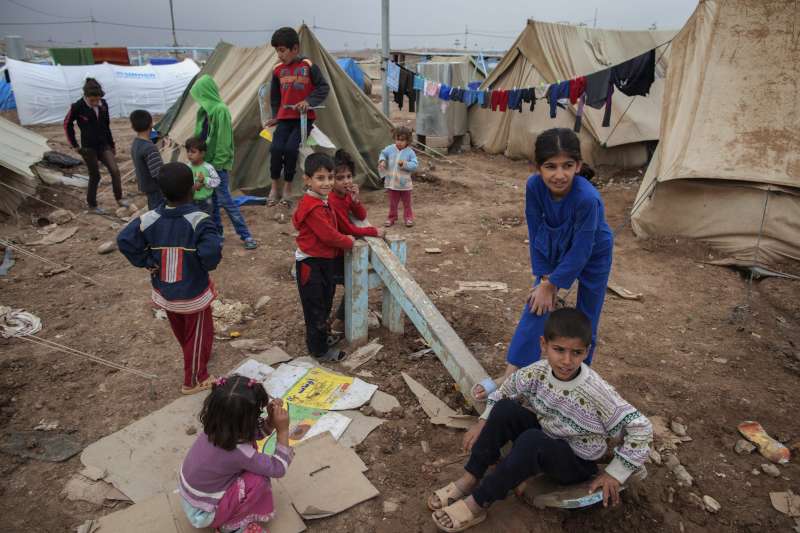Germany supports WFP’s critical assistance to displaced and refugee families in Iraq
The United Nations World Food Programme (WFP) has received a €6 million contribution from the German Federal Foreign Office (GFFO) to support WFP’s monthly food assistance to hundreds of thousands of internally displaced people (IDPs) and Syrian refugees living in Iraq.
WFP monthly food assistance to displaced families and refugees has become more critical with the rise in food prices and the devaluation of the Iraqi currency as the country grapples with the COVID-19 pandemic and its socio-economic effects.
This contribution is part of the Germany’s multi-year commitment to WFP to ensure no one is left behind.
“We share a common responsibility to support those in need, especially refugees and the displaced, and we value that Iraq and in particular the communities in Duhok and Sulaymaniyah have taken in so many families who had to leave their homes,” said Chargé d’Affairs a.i. of the German Embassy in Baghdad Annika Bolten-Drutschmann. “”We consider WFP’s cash transfers a flexible means of assistance that also benefits the host community and small businesses through buying locally.”
WFP provides most of its monthly assistance to vulnerable families through cash transfers, through practical ‘mobile money’ solutions – where families receive cash assistance via mobile phone and can also use it electronically at local stores or – in the case of people living in camps – through electronic vouchers that can be redeemed in camp food shops. When such electronic solutions are not possible, for instance in areas where there is no network coverage, WFP provides through its partners direct cash assistance.
In addition, WFP distributes ready-to-eat food parcels for families who have to be quarantined as part of COVID-19 measures. These rations have also been useful in the past months following tragic fires which occurred in camps in Duhok and Sulaymaniyah.
“Germany continues to be a key partner for WFP in Iraq,” said WFP Representative in Iraq Ally-Raza Qureshi. “As one of WFP’s few partners to make multi-year contributions, Germany’s leading example enables WFP to plan its assistance this and next year, to best meet the food requirements of families in need. We thank the German government and people for their support at this critical time.”
Alongside ongoing emergency operations, WFP is expanding resilience-building and livelihoods activities across the country, to help conflict-affected families and communities create and sustain work opportunities. These are particularly needed as families continue to return home from camps, or settle in new areas. Germany is also a staunch supporter of these endeavours, through its Federal Ministry for Economic Cooperation and Development (BMZ).
(Source: UN)
The post Germany supports Critical Assistance to Displaced in Iraq first appeared on Iraq Business News.



